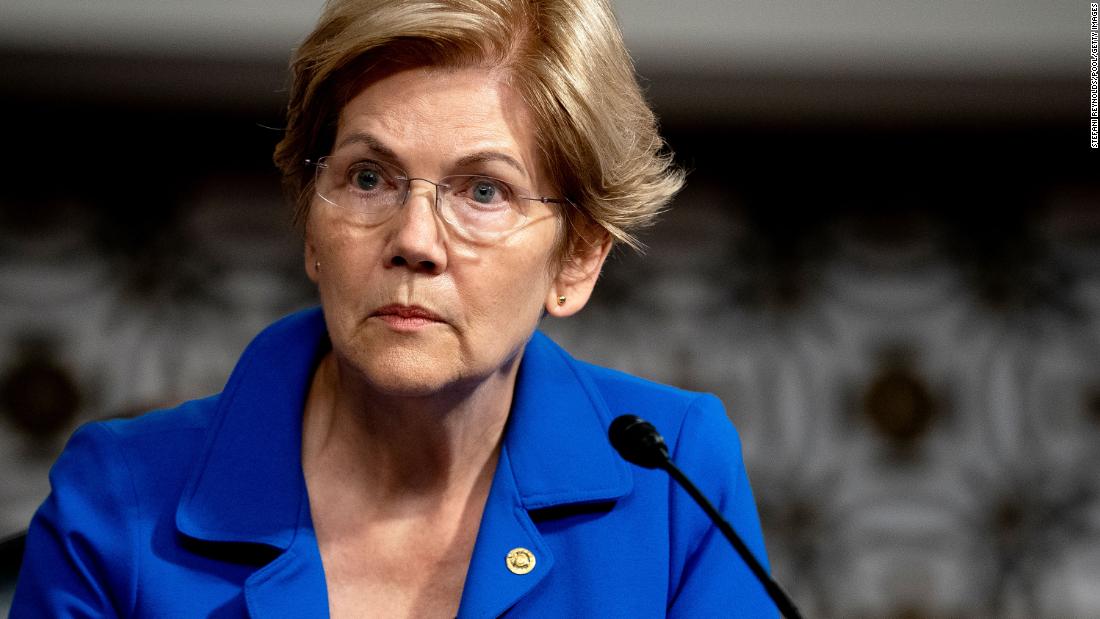Elizabeth Warren says Amazon is ‘like a monster’
“Amazon has the power and uses it to smash little businesses before they ever get a foothold,” the Massachusetts Democrat told CNN in a phone interview.
“You can either be the umpire or a player on the field. But you can’t be both. That’s what Amazon does,” Warren said. “What’s the solution here? Break Amazon up.”
For Facebook, critics’ chief concern is the social media behemoth hasn’t done enough to stop the spread of disinformation or protect user data.
Warren says Amazon uses power to ‘cheat’
Critics of Amazon argue the company has taken unfair advantage of mom-and-pop shops and other competitors.
“Once a monopoly begins to grow, it becomes a thing that goes on its own,” Warren said. “Amazon starts off as the dominant book delivery service. And then it starts morphing into other products and becomes the dominant delivery service. Now it’s like a monster that has to be fed every minute.”
Amazon declined to comment directly on Warren’s remarks.
“All large organizations attract the attention of regulators, and we welcome that scrutiny,” Amazon wrote in the post. “But large companies are not dominant by definition, and the presumption that success can only be the result of anti-competitive behavior is simply wrong.”
Today, Amazon has expanded into everything from entertainment and groceries to prescription drugs. And it’s a leading player in the booming cloud services market.
“Amazon has the one-two punch: economic and political power. Their economic power comes from the dominance of their platform but they expand that dominance by using the platform to cheat,” Warren said. “They then use their political power to keep authorities from holding them accountable.”
Amazon pointed out that it accounts for less than 1% of the $25 trillion global retail market and less than 4% of retail in the United States. The company added that it is not even the largest US retailer (that would be Walmart, by a long shot) and it competes with “large, established companies” like Target, Costco, Kroger, Home Depot and Best Buy.
‘Inside information’
The report found Amazon’s private brands in India exploited internal data to copy products sold by other companies and then offer them on the Amazon platform.
“These allegations are incorrect and unsubstantiated. Amazon does not give preferential treatment to any seller on its marketplace,” Amazon said in response to the Reuters report.
Amazon said it has a policy that “strictly prohibits the use or sharing of non-public, seller-specific data with sellers, including with sellers of private brands” and the company investigates any reports of employees breaking this policy.
Amazon stressed that the way it displays search results for products doesn’t favor its own private-brand products.
Warren, not surprisingly, isn’t buying it.
“How was Amazon able to build a huge clothing presence? The answer is they had inside information about what Indians were buying,” Warren said. “Most people think of antitrust as simply the area a company is in. But what Amazon has shown is how a company can dominate in one area and then leverage that into dominance across multiple areas.”
Of course, many view Amazon as the ultimate success story.
Founded by Jeff Bezos in a garage in 1994, Amazon is now worth more than almost any other company on the planet.
Asked to respond to criticism that she doesn’t respect success, Warren laughed.
“I love markets,” Warren said. “But for markets to function there have to be rules of competition. And Amazon doesn’t respect those rules.”
![]()


